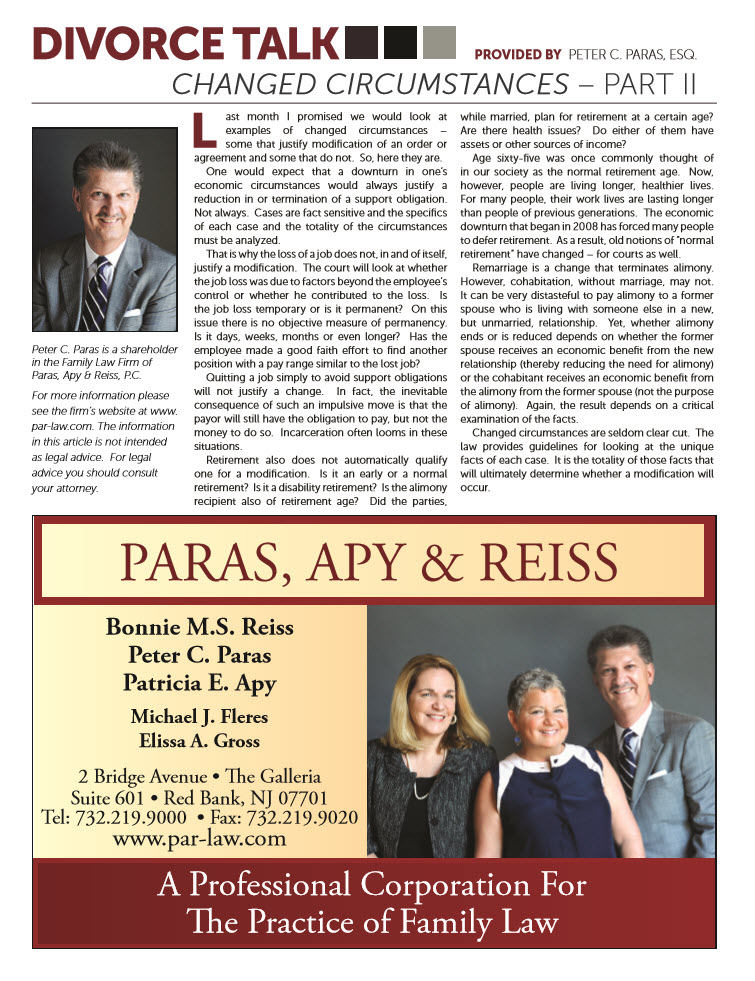Last month I promised we would look at examples of changed circumstances – some that justify modification of an order or agreement and some that do not. So, here they are. One would expect that a downturn in one’s economic circumstances would always justify a reduction in or termination of a support obligation. Not always. Cases are fact sensitive and the specifics of each case and the totality of the circumstances must be analyzed.
That is why the loss of a job does not, in and of itself, justify a modification. The court will look at whether the job loss was due to factors beyond the employee’s control or whether he contributed to the loss. Is the job loss temporary or is it permanent? On this issue there is no objective measure of permanency. Is it days, weeks, months or even longer? Has the employee made a good faith effort to find another position with a pay range similar to the lost job?
Quitting a job simply to avoid support obligations will not justify a change. In fact, the inevitable consequence of such an impulsive move is that the payor will still have the obligation to pay, but not the money to do so. Incarceration often looms in these situations.
Retirement also does not automatically qualify one for a modification. Is it an early or a normal retirement? Is it a disability retirement? Is the alimony recipient also of retirement age? Did the parties, while married, plan for retirement at a certain age? Are there health issues? Do either of them have assets or other sources of income?
Age sixty-five was once commonly thought of in our society as the normal retirement age. Now, however, people are living longer, healthier lives. For many people, their work lives are lasting longer than people of previous generations. The economic downturn that began in 2008 has forced many people to defer retirement. As a result, old notions of “normal retirement” have changed – for courts as well.
Remarriage is a change that terminates alimony. However, cohabitation, without marriage, may not. It can be very distasteful to pay alimony to a former spouse who is living with someone else in a new, but unmarried, relationship. Yet, whether alimony ends or is reduced depends on whether the former spouse receives an economic benefit from the new relationship (thereby reducing the need for alimony) or the cohabitant receives an economic benefit from the alimony from the former spouse (not the purpose of alimony). Again, the result depends on a critical examination of the facts.
Changed circumstances are seldom clear cut. The law provides guidelines for looking at the unique facts of each case. It is the totality of those facts that will ultimately determine whether a modification will occur.

